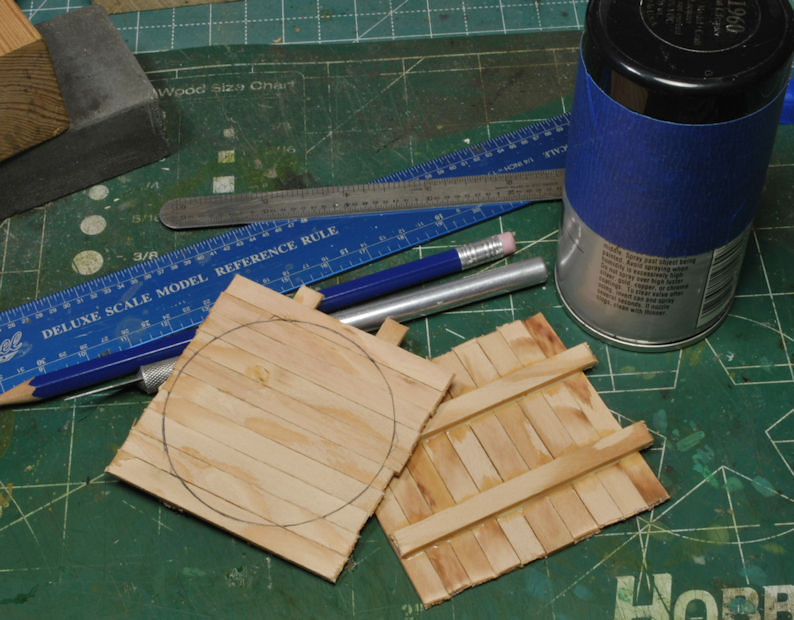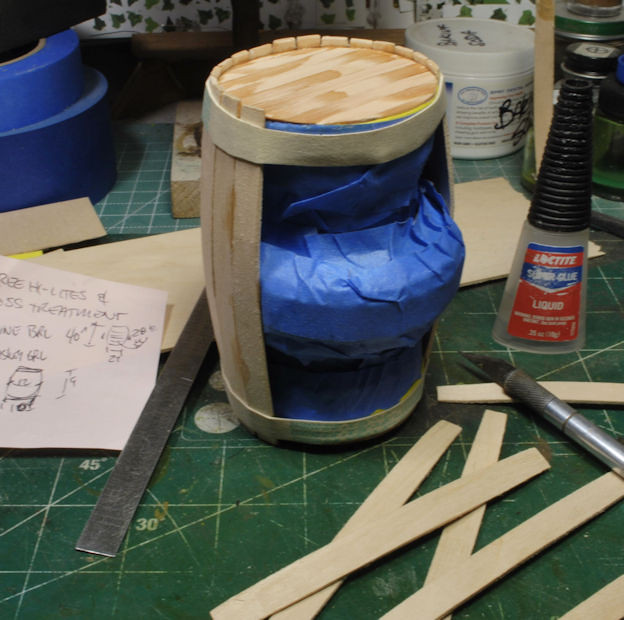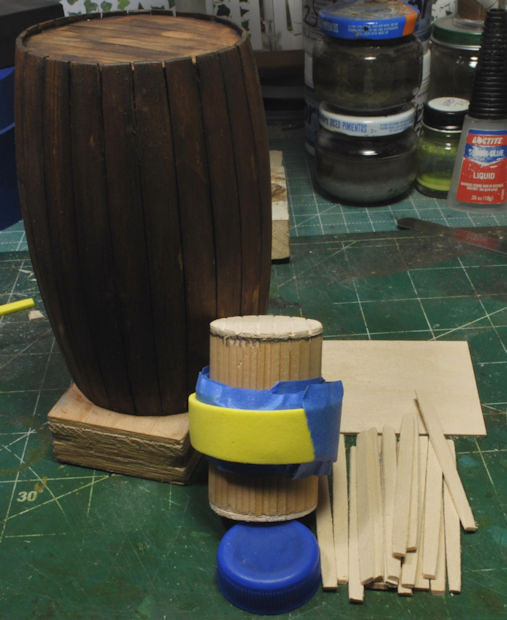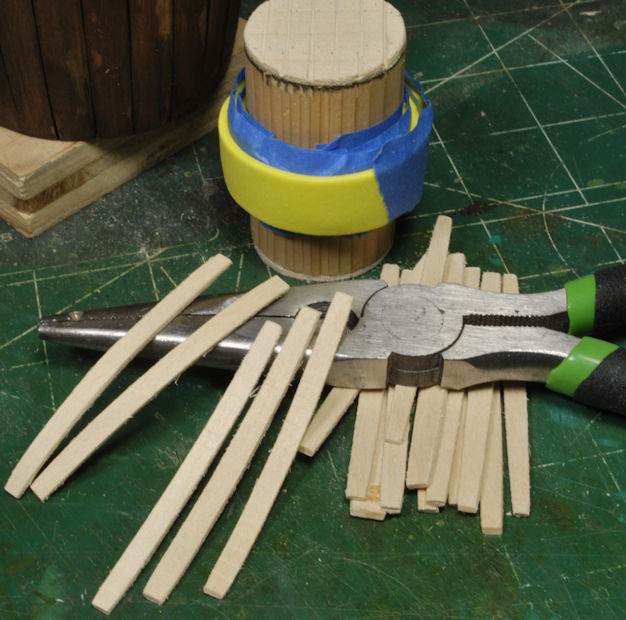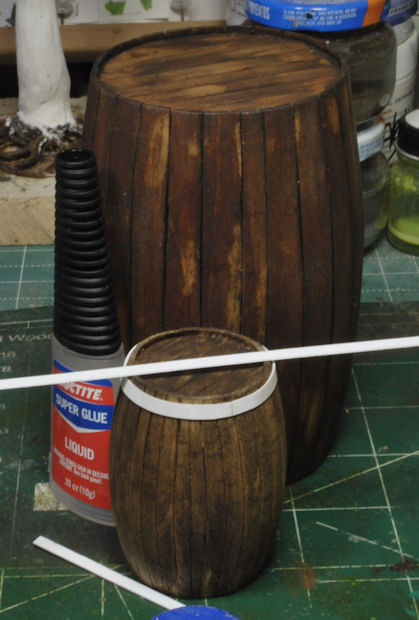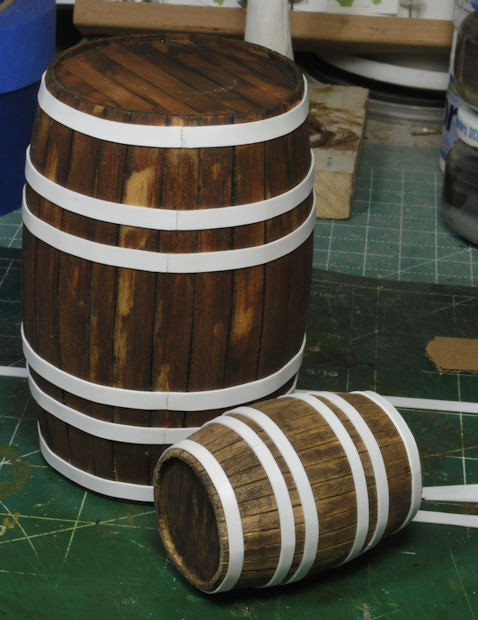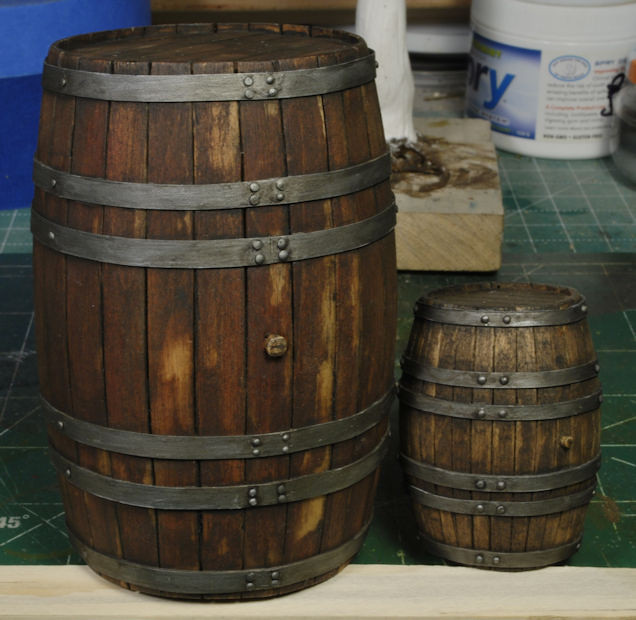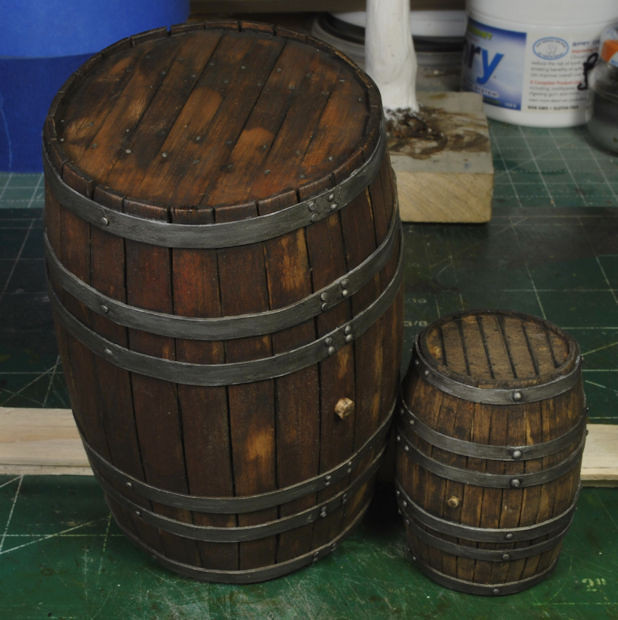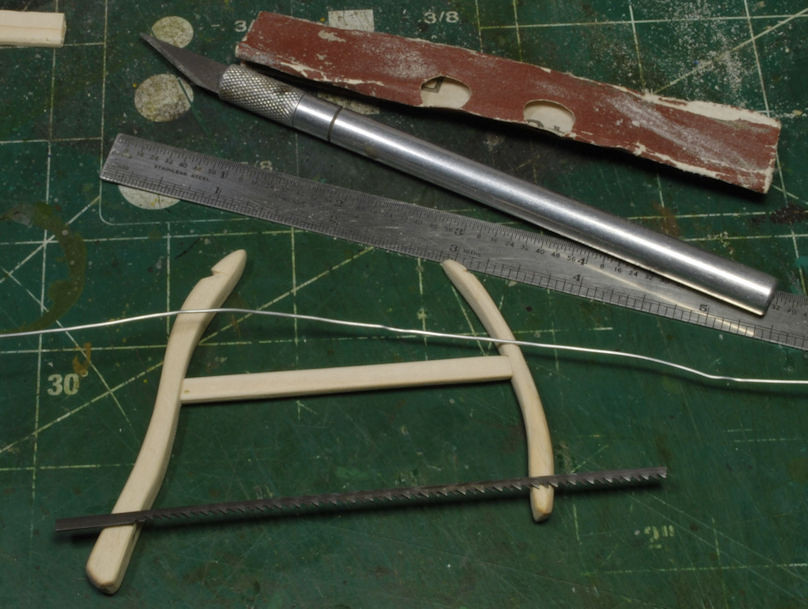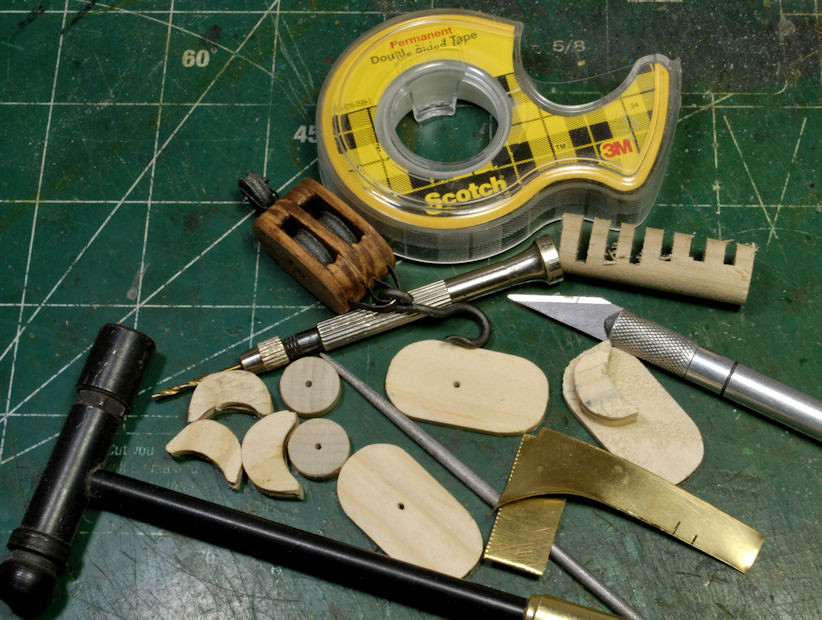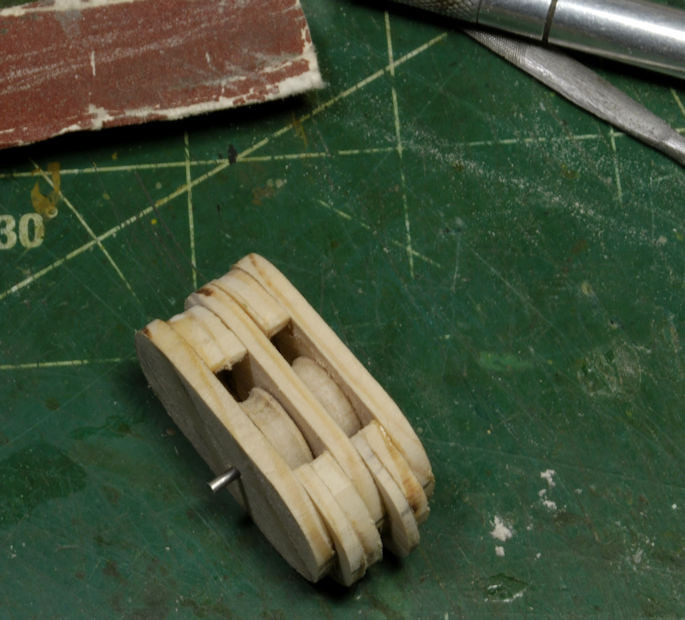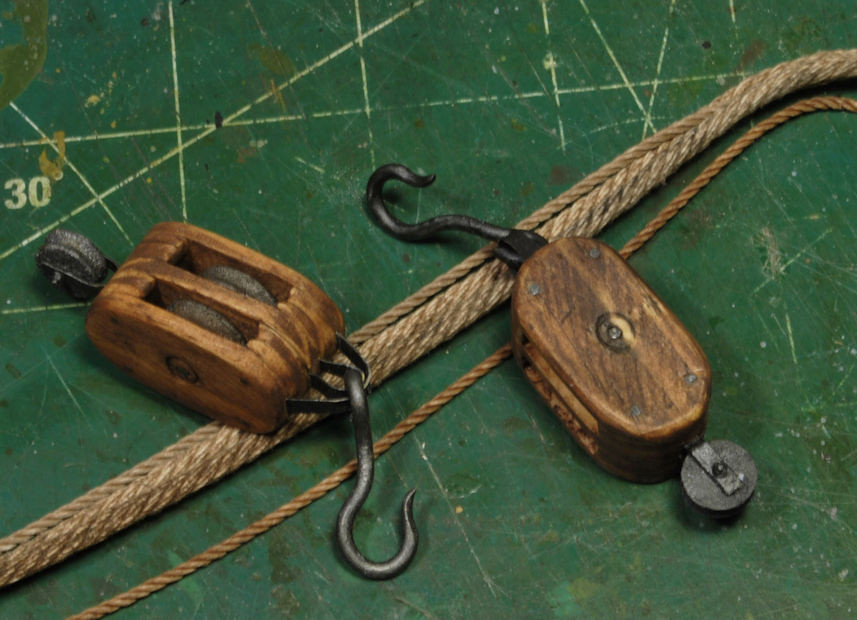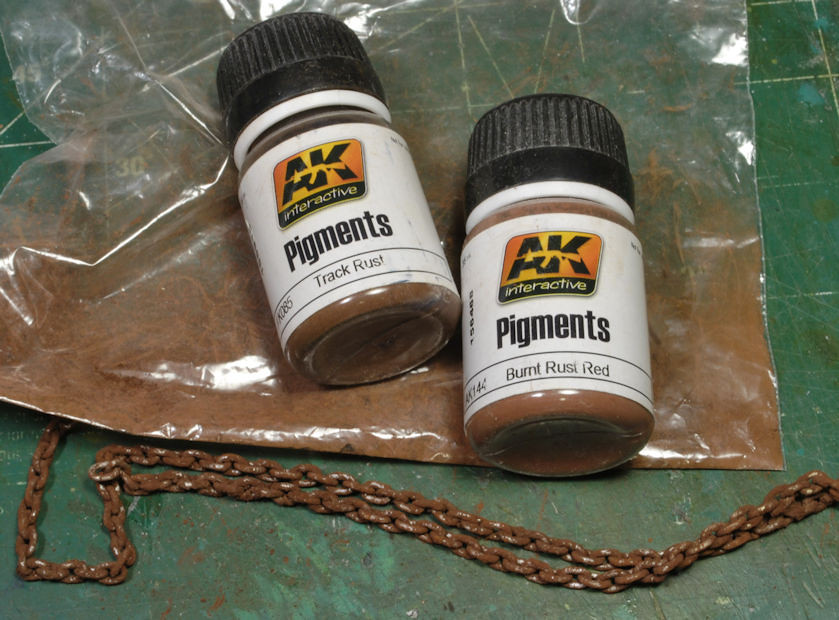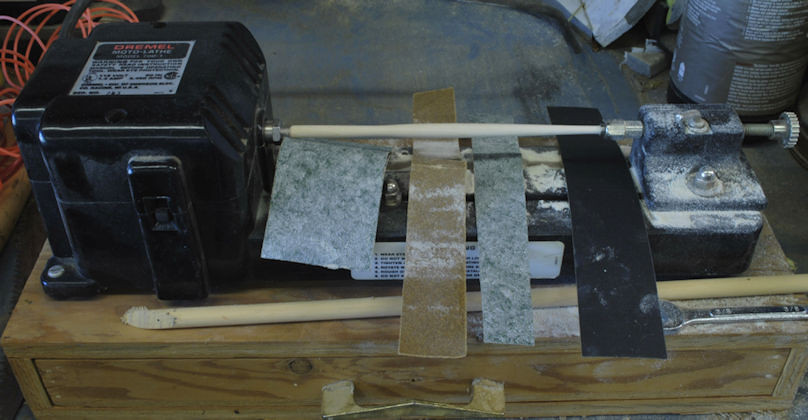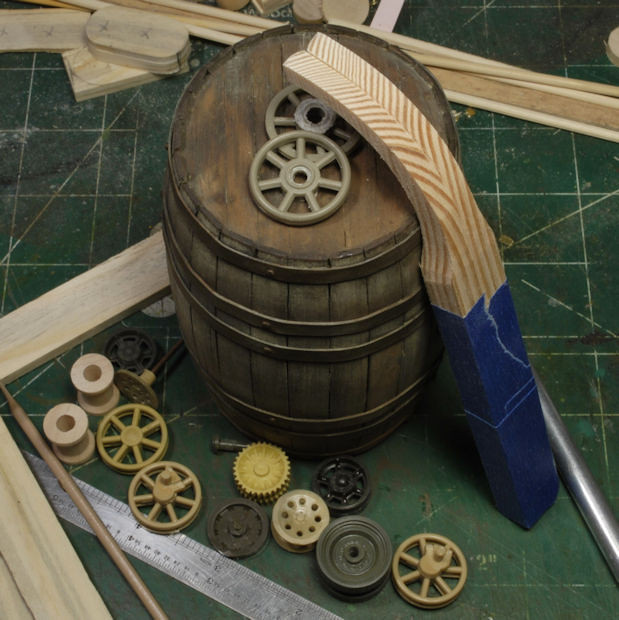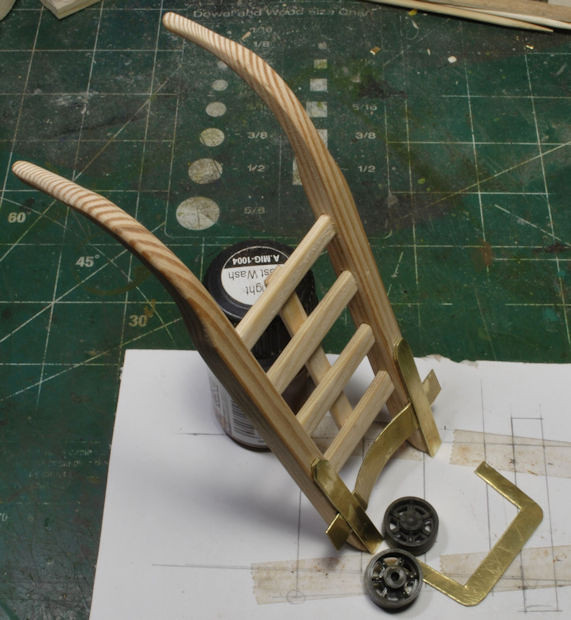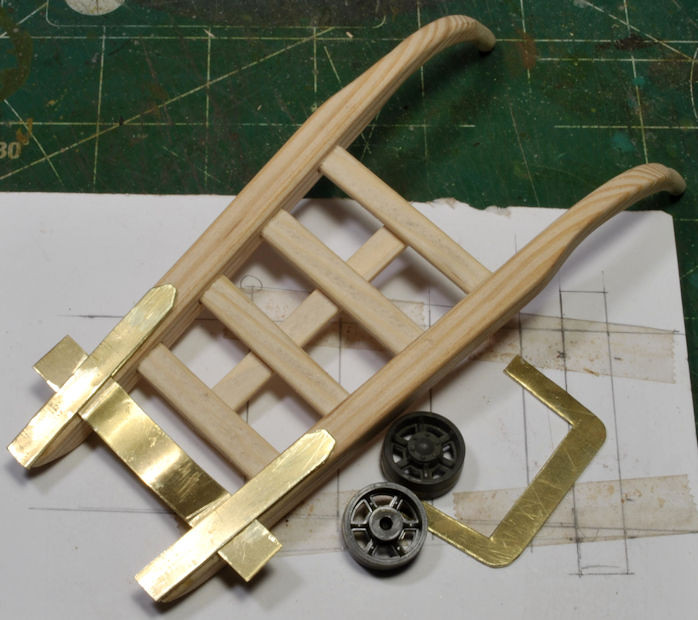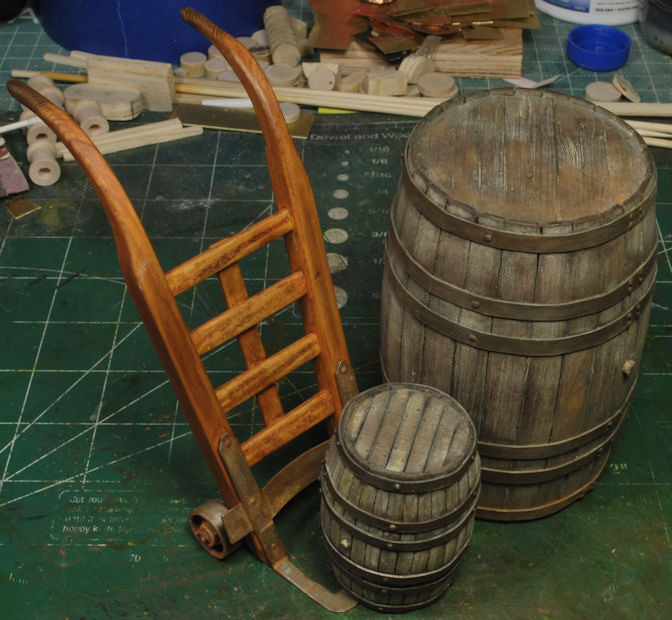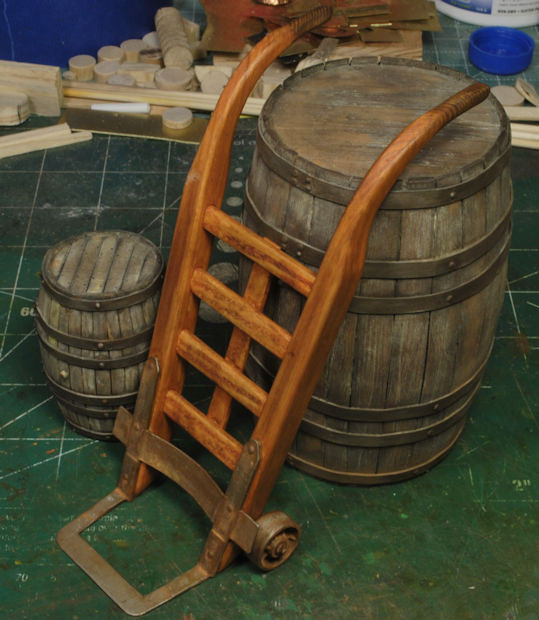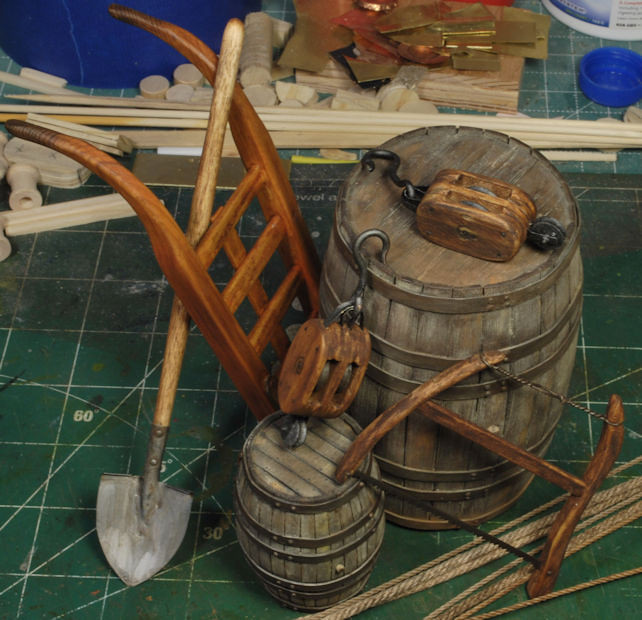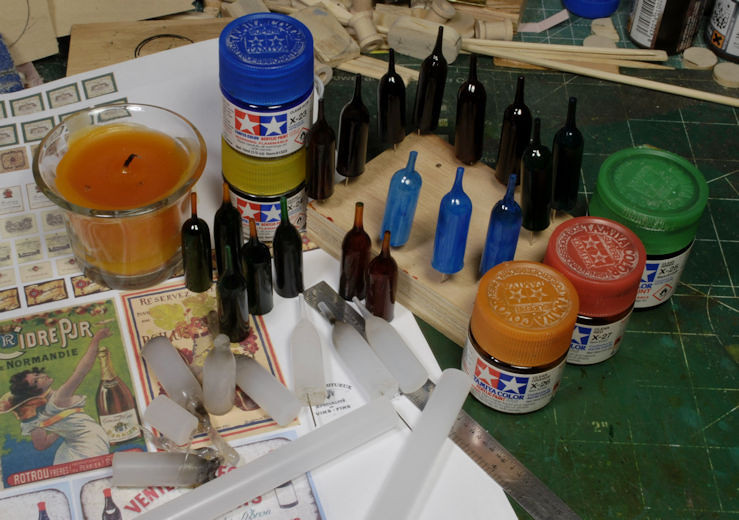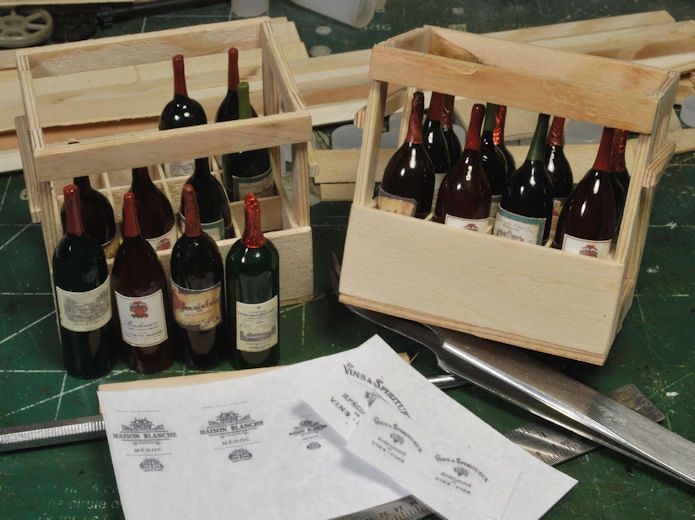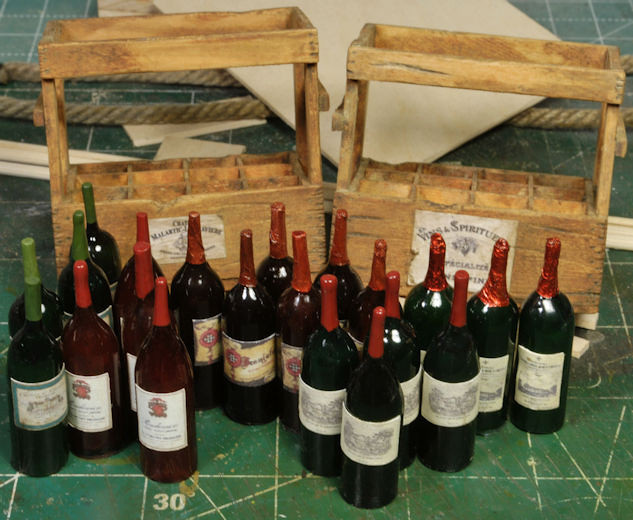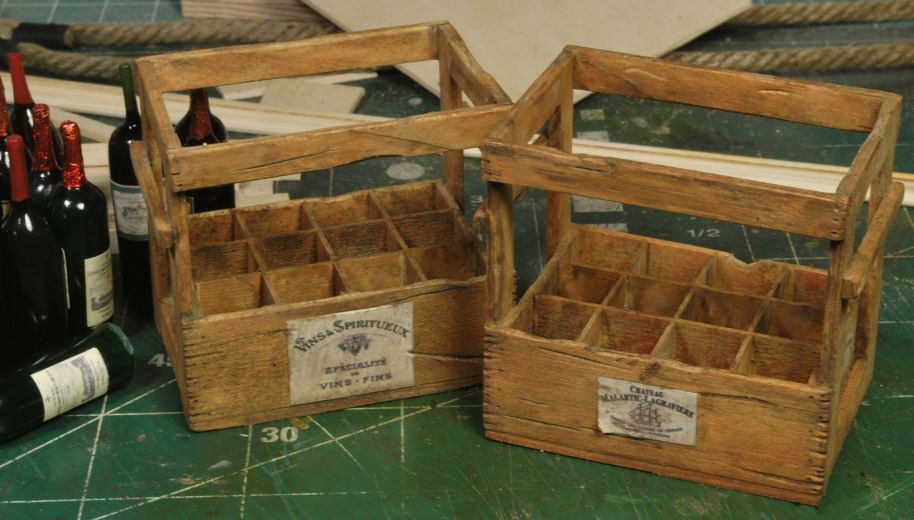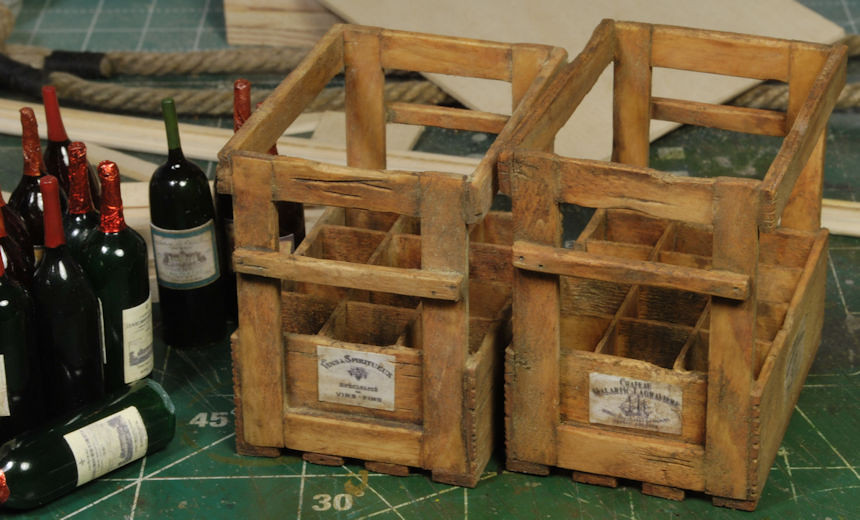Steve Ski
Well-known member
Will It Pass Muster?
I’ve got a bit to cover here, but I’ll do my best to keep it short. This layout needs to be accurate.
With the tree finally finished as far as I will take it, it’s now time to check character alignment and see if this story can be told in a convincing manner. After all, if I can’t pull this off the whole thing will just have been a very lengthy exercise. However, I think I can pull it off, but yall will need to lend me some eyeballs, if you please. I believe I’ve got every angle covered where the visual direction is correct for each figure, so don’t be shy. The figures are just pinned and I can adjust as needed.
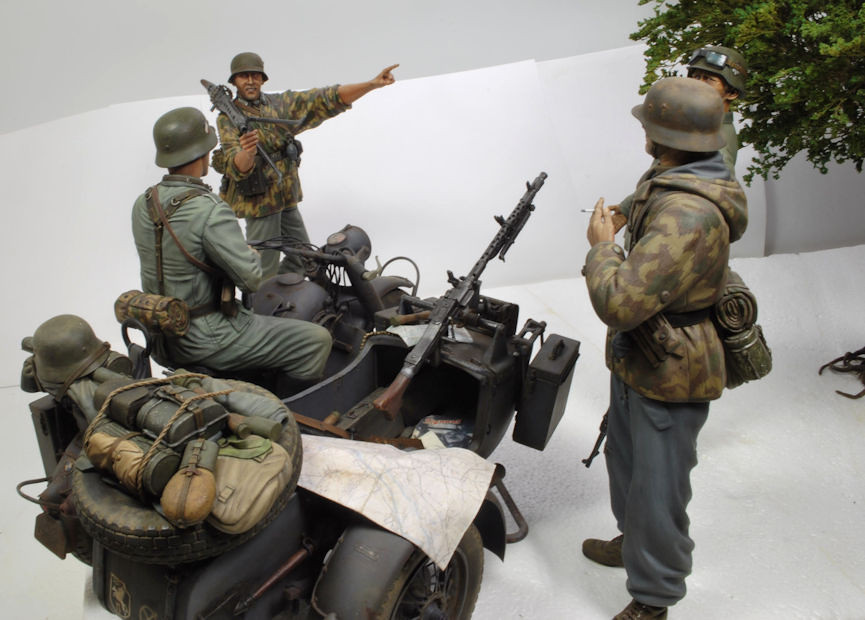
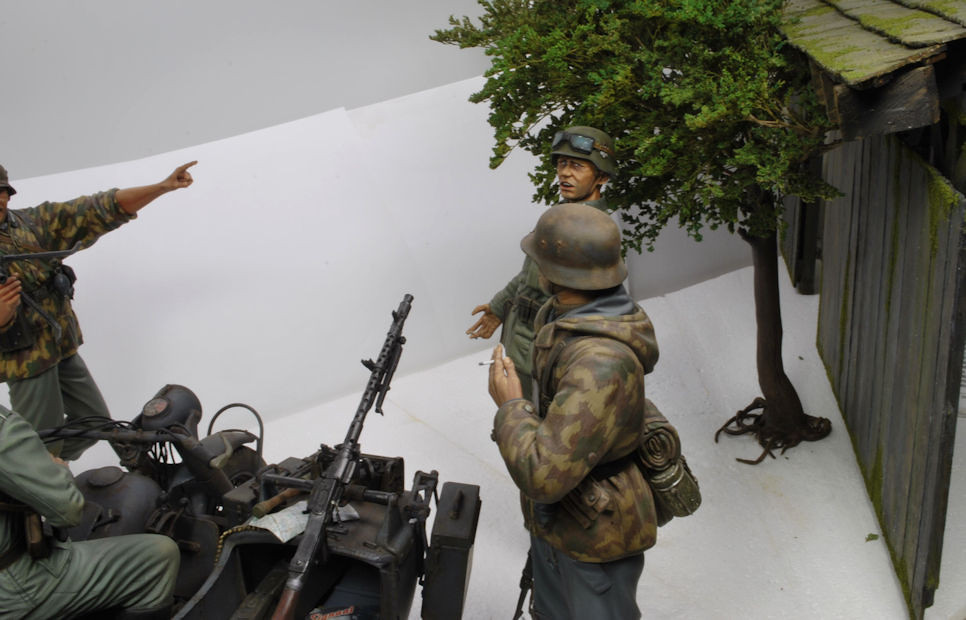
You can see the foam has been glued to the base already. I was sweating it this morning wondering if I had any thin sheets or would I be waiting until I acquired some. Fortunately, I had several thin sheets set aside specifically for this base and had totally forgotten about them. It’s only been a few years since I’d worked this dio steady, so I was bound to forget something, right?
I’ll make a quick note here to say that when painting the eyes for each figure and having a scenario in mind, you should be painting the eyes to reflect the interaction you will need once these figures are placed. Obviously, right? In a scenario with a larger number of figures in a smaller scale this wouldn’t be much of an issue, but in this scale, ya better have it figured out or you will be going back to correct the eyes. Some of these figures were painted a very long time ago, comparatively, so I recon I got lucky, lol. I’ve had this layout planned since the beginning, with minor structure changes, but the basic interaction is still the same. The placement of two figures has been changed, but this tells a better story as they are seen now.
Ok, back to the layout and figure interaction, the eyes, etc. The main issue was placing the Ranger in a position to see the Germans from decent concealment and not be visible himself. If his new guests were paying attention somebody would have seen him eventually, but he’s got the upper hand in this scenario, the element of surprise. These guys don’t look like they can agree on much of anything and a few of them look confused, so this is a perfect set up for an ambush thrown in the Ranger’s lap. How could he refuse? And he was just stopping for a bite of cheese and some wine.
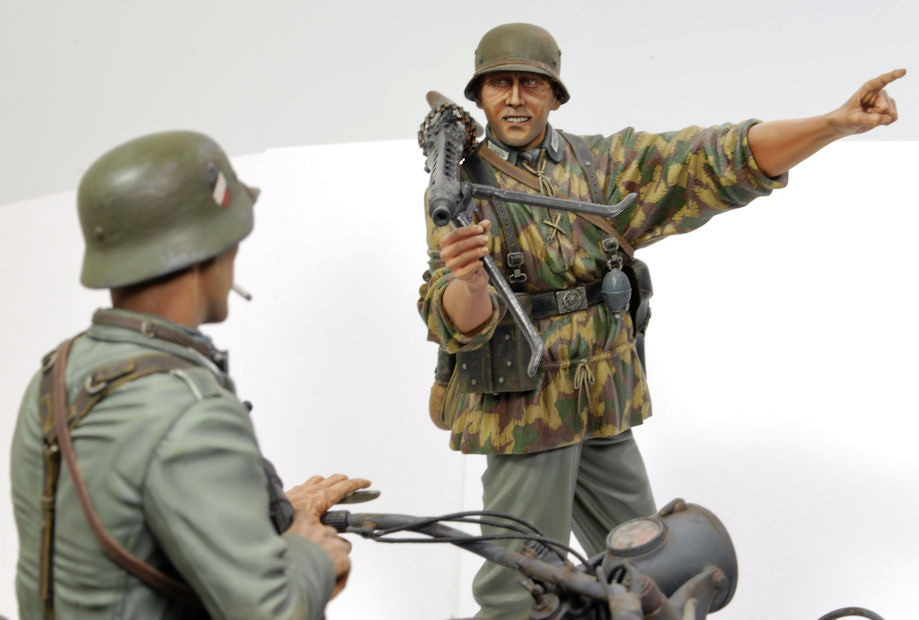
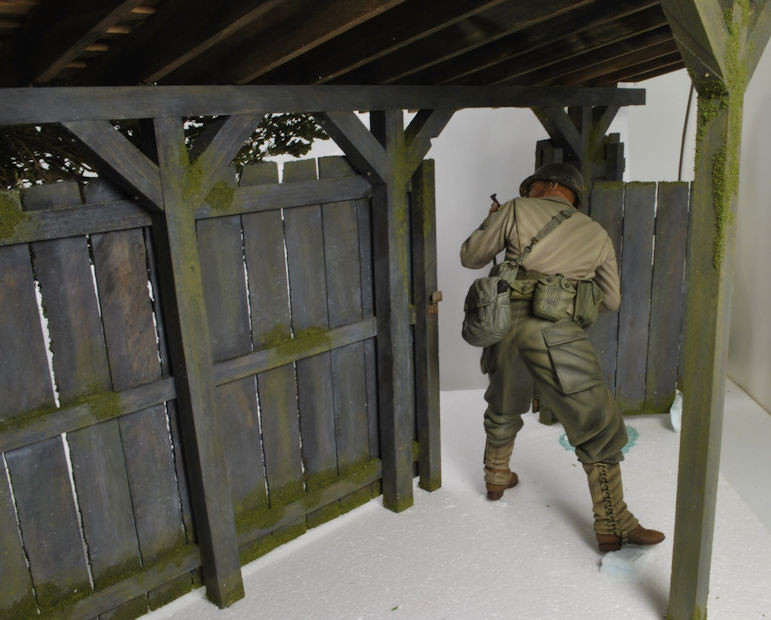
Hiding in an out building, shed, lean-to, whatever you want to call it, he’s not easily seen, especially with the crawling ivy, bushes, and the tree with low hanging branches. The outside will get all the trimmings making visibility through the slats between boards very difficult. This really was the best solution to show how the Ranger would get the drop on four unsuspecting Germans who just so happened to stop to converse, or argue, over directions.
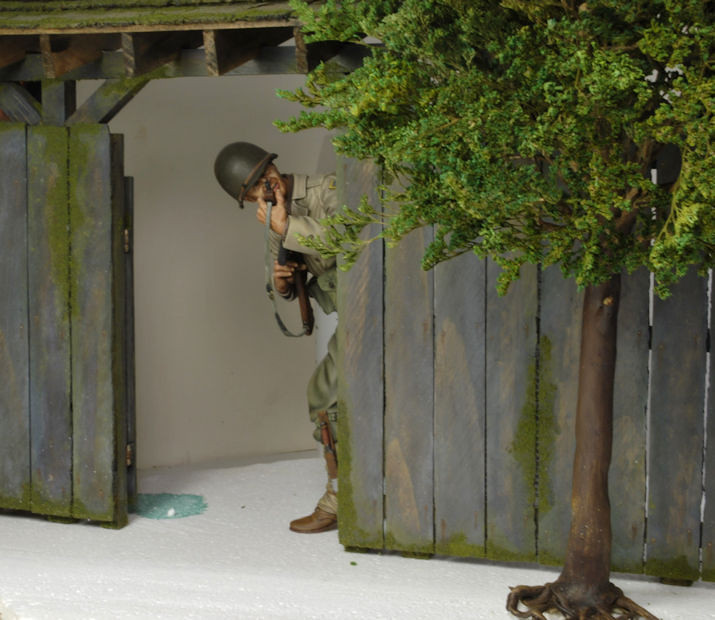
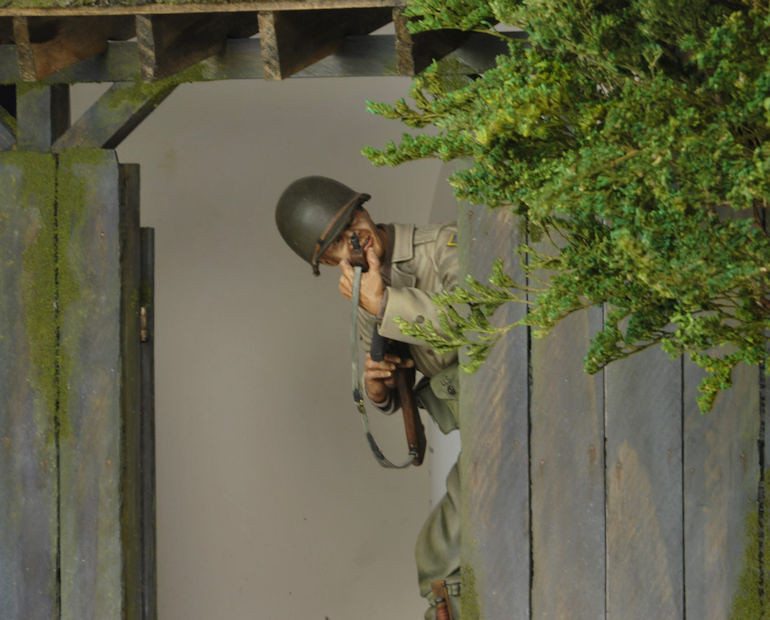
I have found quite a few pics from the inet when searching French farms buildings, out-buildings, sheds, etc., that are covered in ivy, brush, and overgrowth, so I know this scenario is very plausible. You can’t see it from any of these photos, but he does have a great direct line-of-sight on these four Germans through the low hanging branches and his body is virtually invisible.
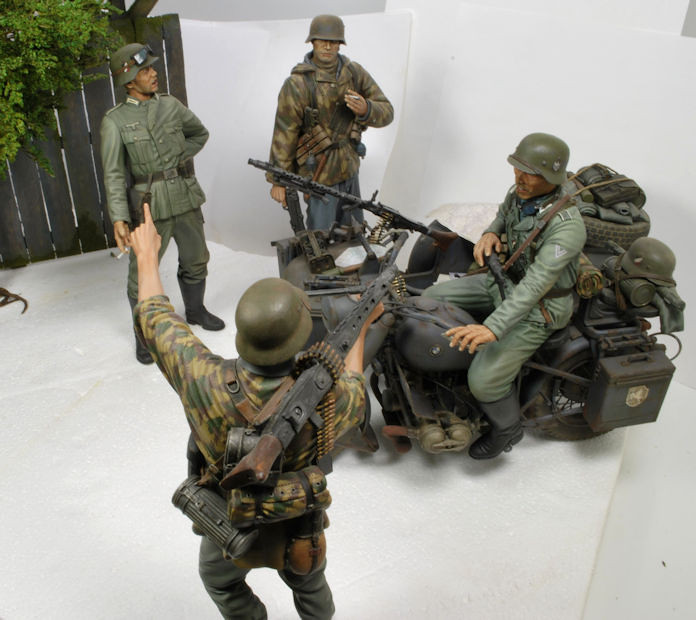
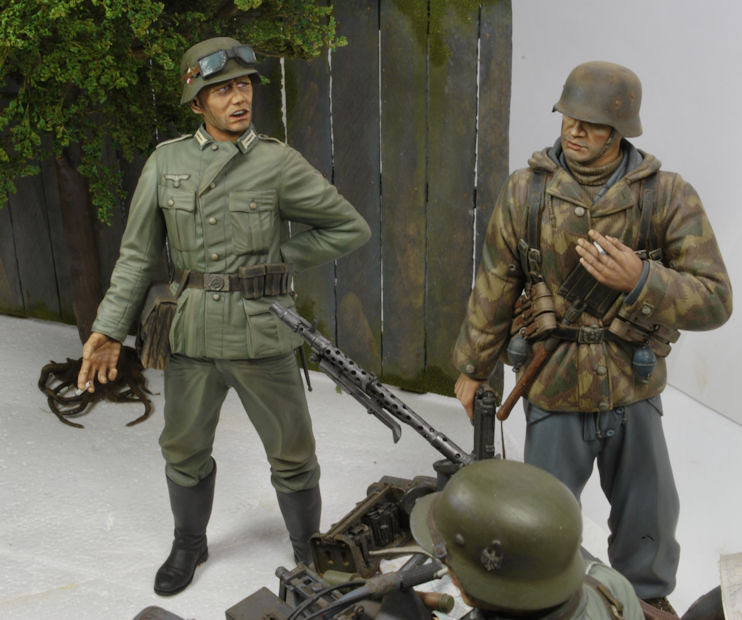
Making sure that each figure is looking directly at the intended recipient I realized the R75 pax should actually not be looking at the grenadier, but more towards the driver in a manner of disgust. There needs to be an air of disagreement and impatience on the part of the R75 crew. I’ve already made corrections on the board layout.
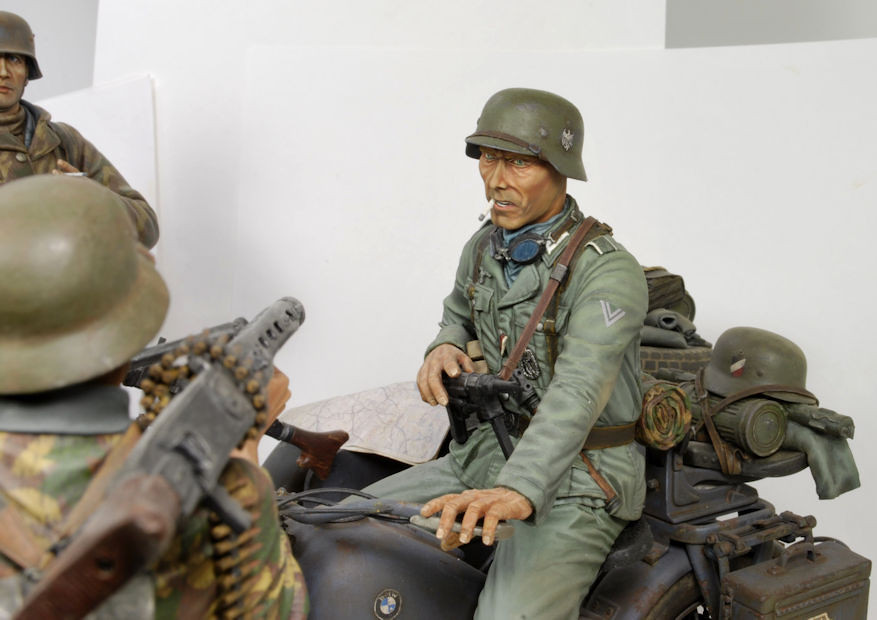
Now it’s time to continue prepping the veggies and get the shed items made as well as prep the base for ground cover. There’s still quite a bit to do before permanently placing these figures and snaping photos for the finish.
If you have any comments or suggestions, feel free to cut loose, all are welcome. If you see anything I’m not catching here, holler. Thanks for watchin.
Cheers, Ski.
I’ve got a bit to cover here, but I’ll do my best to keep it short. This layout needs to be accurate.
With the tree finally finished as far as I will take it, it’s now time to check character alignment and see if this story can be told in a convincing manner. After all, if I can’t pull this off the whole thing will just have been a very lengthy exercise. However, I think I can pull it off, but yall will need to lend me some eyeballs, if you please. I believe I’ve got every angle covered where the visual direction is correct for each figure, so don’t be shy. The figures are just pinned and I can adjust as needed.


You can see the foam has been glued to the base already. I was sweating it this morning wondering if I had any thin sheets or would I be waiting until I acquired some. Fortunately, I had several thin sheets set aside specifically for this base and had totally forgotten about them. It’s only been a few years since I’d worked this dio steady, so I was bound to forget something, right?
I’ll make a quick note here to say that when painting the eyes for each figure and having a scenario in mind, you should be painting the eyes to reflect the interaction you will need once these figures are placed. Obviously, right? In a scenario with a larger number of figures in a smaller scale this wouldn’t be much of an issue, but in this scale, ya better have it figured out or you will be going back to correct the eyes. Some of these figures were painted a very long time ago, comparatively, so I recon I got lucky, lol. I’ve had this layout planned since the beginning, with minor structure changes, but the basic interaction is still the same. The placement of two figures has been changed, but this tells a better story as they are seen now.
Ok, back to the layout and figure interaction, the eyes, etc. The main issue was placing the Ranger in a position to see the Germans from decent concealment and not be visible himself. If his new guests were paying attention somebody would have seen him eventually, but he’s got the upper hand in this scenario, the element of surprise. These guys don’t look like they can agree on much of anything and a few of them look confused, so this is a perfect set up for an ambush thrown in the Ranger’s lap. How could he refuse? And he was just stopping for a bite of cheese and some wine.


Hiding in an out building, shed, lean-to, whatever you want to call it, he’s not easily seen, especially with the crawling ivy, bushes, and the tree with low hanging branches. The outside will get all the trimmings making visibility through the slats between boards very difficult. This really was the best solution to show how the Ranger would get the drop on four unsuspecting Germans who just so happened to stop to converse, or argue, over directions.


I have found quite a few pics from the inet when searching French farms buildings, out-buildings, sheds, etc., that are covered in ivy, brush, and overgrowth, so I know this scenario is very plausible. You can’t see it from any of these photos, but he does have a great direct line-of-sight on these four Germans through the low hanging branches and his body is virtually invisible.


Making sure that each figure is looking directly at the intended recipient I realized the R75 pax should actually not be looking at the grenadier, but more towards the driver in a manner of disgust. There needs to be an air of disagreement and impatience on the part of the R75 crew. I’ve already made corrections on the board layout.

Now it’s time to continue prepping the veggies and get the shed items made as well as prep the base for ground cover. There’s still quite a bit to do before permanently placing these figures and snaping photos for the finish.
If you have any comments or suggestions, feel free to cut loose, all are welcome. If you see anything I’m not catching here, holler. Thanks for watchin.
Cheers, Ski.


